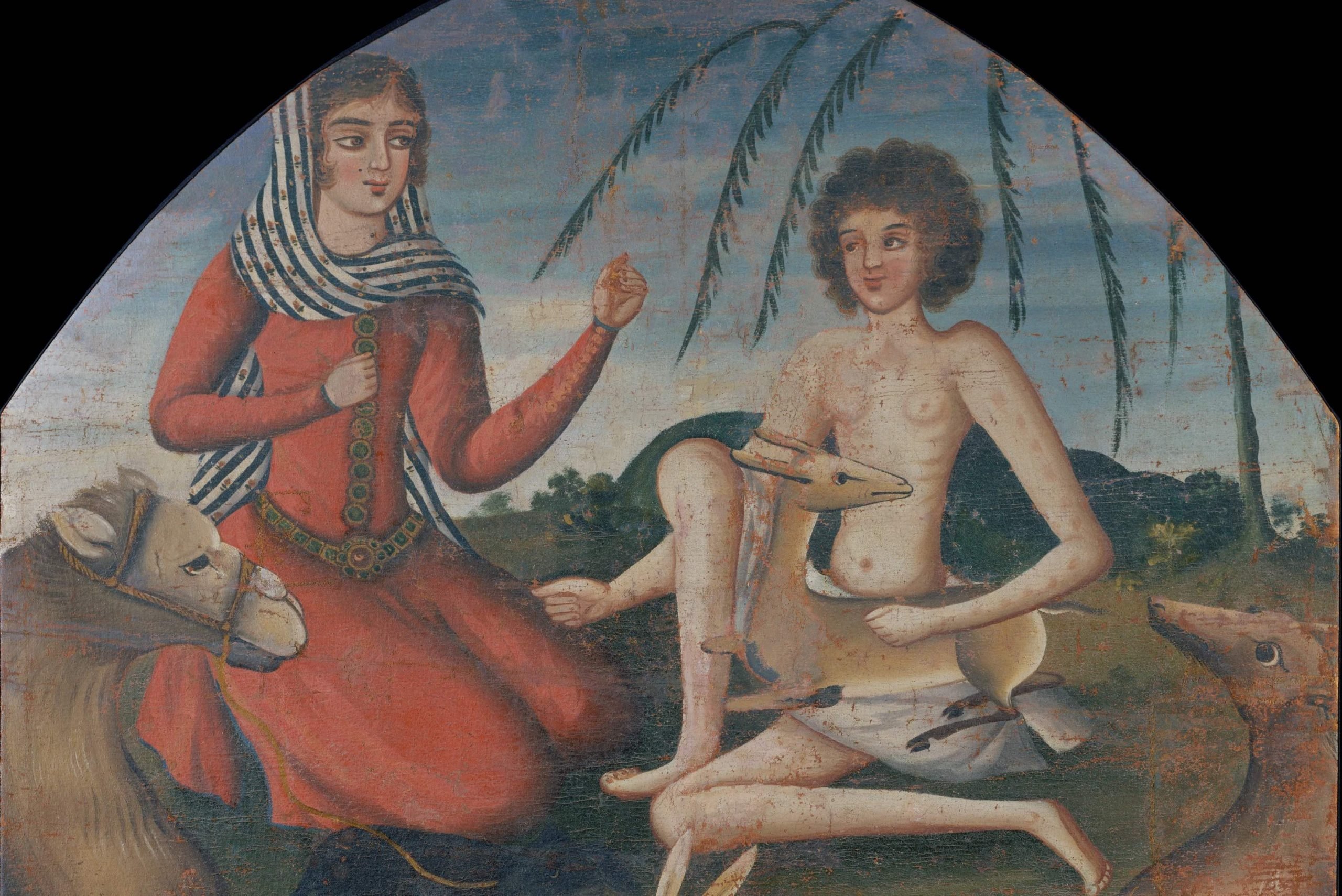What Lord Byron called ‘the Romeo and Juliet of the East’ has passed through the Arabic, Persian, Turkish and Indian languages. The story of Laila-Majnu, of Old Arabic origin, was written by Qays ibn al-Mulawwah in the 7th century about his love Layla bint Mahdi.
The poem became popularised as a praise of soul-binding love and permeates literature of the cultures it has touched. In the South Asian subcontinent, the story of Laila Majnu is widely used in modern art and literature to refer to the tragedy and intense love of the ‘star-crossed lovers’ (to compound Byron’s orientalism) and express the idea that two lovers have been created for one another.
The autobiographical anecdotes from al-Mulawwah himself are short and very loosely interconnected, but poets such as Nizami and Amir Khusrow have extended on them to create love poems that stand as original literary works in their own right.
Today, I’ll tell you the story as I know it, as it has permeated through the South Asian culture and has come to stand as its own confession of love, separate from its literature.
We don’t know where and we don’t know when, but we do know that there were two tribes whose children shared a school. There was, at this school, a Qais, from whose mouth fell pearls when he spoke and a Laila, who was bright as the morning with eyes dark as a stag’s.
They shared one single glance that sent their hearts ablaze and muddled their every thought and Qais was determined to woo her. Each time they gazed on one another; Love’s flaming taper blazed more intensely.
So immersed in love, the whole world watched as their hearts became one. Till Qais became sick with the passion of his love, watching the ringlets of her curls and her dark eyes flashing quick and bright, he gazed and gazed and found no rest for Laila was forever in his sight.
Till one day he sought her in her home, climbing the ivy on the wall and crying ‘Laila! Laila!’. Dejected and forlorn he finds his love is gone but her scent still scintillates. He laid prostrate in his grief and whispers in vow,
“Your form never quits my sight,
Fetters my thoughts by day and my dreams by night;
Could it be that
The Evil eye has lifted and struck my heart?
It’ll be your beauty that sped the dart.”
As the morning sun rose, Qais became Majnun, maddened by his love for his Laila.
He rose with his eyes all tears and his soul aflame and never stopped repeating his Laila’s name in all his wanderings.
Faint and reckless as he was, he passed through the desert in search of his Laila, for Majnun’s love was not of this earth, nor could this earth hold it.
He searched and searched as his heart was consumed with grief and was sighted by Laila’s tribe, who reported back to her chieftain father that there was a madman amongst the sands chanting her name with his loose hair and outstretched arms, and that he often either dances in love-daze or prostrates on the ground, warbling the melting songs of their love.
Laila’s blush sealed his death warrant. They ventured the desert, seeking to soak it with his blood and Laila was wrung with groans and tears. Across the desert span, each breathed a prayer for the other and the sands sighed in mournful strain as Majnun moves towards home.
Laila was hastily married off to a rich and noble merchant, a handsome man with a rose complexion and Majnun was hunted for many days and nights until it was decided to leave him to the talons of the desert that he had condemned himself to.
But, even on the night of her wedding, Laila heard of her lover’s constant woes, as his poetry and songs of her pervaded the lands to reach her walls.
She pines alone, consumed in deep despair. She sheds no tears until the fatal passion invades and the agony sears.
And if you must know, then know that, cursing the poison of Love, she claims that her prayers for Majnun themselves were written with the pen of Love. She claims that f they should be the dark shame of night, then the lovers’ Resurrection will come with the rising sun.
She begs her mother for her Qais:
‘All I desire
Laid on my pyre, pillowed in my grave,
Is that anguish-tormented youth, who
With his ambrose words of truth,
Blended our souls into one;
That he may come
And I may feel his first touch
In the tears he weeps upon his Laila’s tomb.’
And Laila’s mother watched her beauty settle into the trance of demise, watched as she dissolved like salt into tears, how she fell into a spell of shivers, prostrate on the sands and never, never, never rose again.
All the skies wept for their fate and weeping Majnun’s friends washed his white bones and with ceaseless tears performed the final funeral rite, laying him mournfully by his Laila’s side.
And gently, in that cold, dark earth, one grave hides their corpses, that death was no divorce of this one promise that bound their hearts. In final safety, their souls from their graves moved as one.
Source: Niẓāmī Ganjavī (1141-1202), trans. Atkinson, James (1780-1852), ed. Atkinson, James Augustus (1832?-1911), Loves of Lailí and Majnún : A Poem from the Original Persian of Nizámi. London: David Nutt, 1894. Presented to Oxford Bodleian Indian Institute November 1894.
Image Credit: Metropolitan Museum of Art, CC0 1.0



